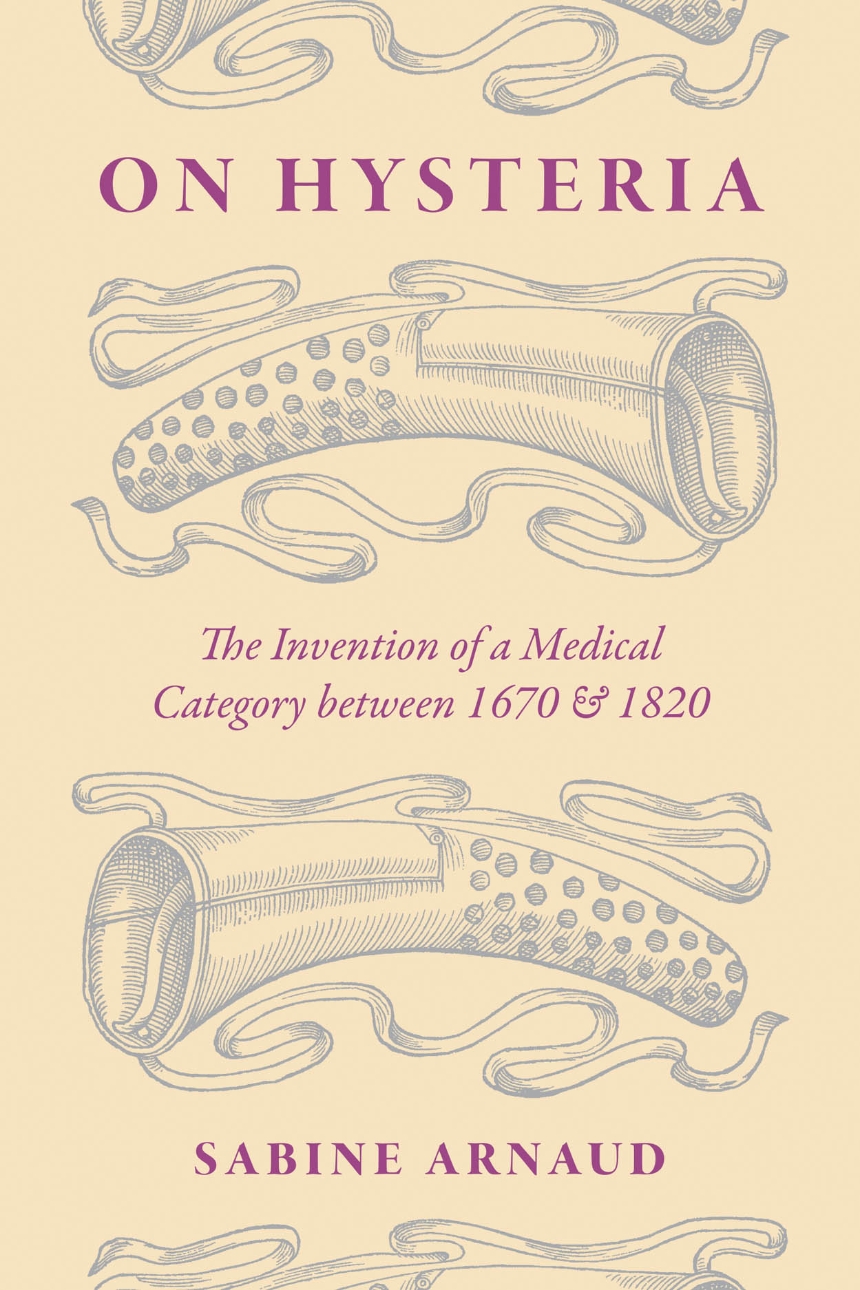On Hysteria
The Invention of a Medical Category between 1670 and 1820
These days, hysteria is known as a discredited diagnosis that was used to group and pathologize a wide range of conditions and behaviors in women. But for a long time, it was seen as a legitimate category of medical problem—and one that, originally, was applied to men as often as to women.
In On Hysteria, Sabine Arnaud traces the creation and rise of hysteria, from its invention in the eighteenth century through nineteenth-century therapeutic practice. Hysteria took shape, she shows, as a predominantly aristocratic malady, only beginning to cross class boundaries (and be limited to women) during the French Revolution. Unlike most studies of the role and status of medicine and its categories in this period, On Hysteria focuses not on institutions but on narrative strategies and writing—the ways that texts in a wide range of genres helped to build knowledge through misinterpretation and recontextualized citation.
Powerfully interdisciplinary, and offering access to rare historical material for the first time in English, On Hysteria will speak to scholars in a wide range of fields, including the history of science, French studies, and comparative literature.
In On Hysteria, Sabine Arnaud traces the creation and rise of hysteria, from its invention in the eighteenth century through nineteenth-century therapeutic practice. Hysteria took shape, she shows, as a predominantly aristocratic malady, only beginning to cross class boundaries (and be limited to women) during the French Revolution. Unlike most studies of the role and status of medicine and its categories in this period, On Hysteria focuses not on institutions but on narrative strategies and writing—the ways that texts in a wide range of genres helped to build knowledge through misinterpretation and recontextualized citation.
Powerfully interdisciplinary, and offering access to rare historical material for the first time in English, On Hysteria will speak to scholars in a wide range of fields, including the history of science, French studies, and comparative literature.
Reviews
Table of Contents
Foreword
Introduction
1 Names and Uses of a Diagnosis
The Establishment of Hysteria as a Medical Category
An Intermingling of Terms
First Occurrences of the Term “Hysteria”
Vaporous Affection and Social Class
Encounters between Medical and Religious Spheres
2 In Search of Metaphors: Figuring What Cannot Be Defined
A Catalog of Images: Proteus, the Chameleon, and the Hydra
Repeated Quotations, Divergent Readings
3 The Writing of a Pathology and Practices of Dissemination
Dialogue
Autobiography
Fictional Correspondence
The Epistolary Consultation
Anecdotes
4 Code, Truth, or Ruse? The Vapors in the Republic of Letters
Well-Timed Fits
The Practice of Vapors
The Force of the Imagination
5 Relating Fits and Creating Enigmas: The Role of Narrative
Bodies Awaiting Exegesis
The Rise of Medical Narrative
In the Shadow of a Gothic Tale
Traps and Countertraps
The Construction of Secrets
6 Adopting Roles and Redefining Medicine
To Mystify or to Demystify? Establishing the Role of the Therapist
Magnetism, Parodies, and Mystification: The Art of Framing a Therapeutic Practice
Strategies of Legitimation and Definitions of the Patient to Come
Investing in Women
Conclusion
Acknowledgments
Notes
Bibliography
Index
Introduction
1 Names and Uses of a Diagnosis
The Establishment of Hysteria as a Medical Category
An Intermingling of Terms
First Occurrences of the Term “Hysteria”
Vaporous Affection and Social Class
Encounters between Medical and Religious Spheres
2 In Search of Metaphors: Figuring What Cannot Be Defined
A Catalog of Images: Proteus, the Chameleon, and the Hydra
Repeated Quotations, Divergent Readings
3 The Writing of a Pathology and Practices of Dissemination
Dialogue
Autobiography
Fictional Correspondence
The Epistolary Consultation
Anecdotes
4 Code, Truth, or Ruse? The Vapors in the Republic of Letters
Well-Timed Fits
The Practice of Vapors
The Force of the Imagination
5 Relating Fits and Creating Enigmas: The Role of Narrative
Bodies Awaiting Exegesis
The Rise of Medical Narrative
In the Shadow of a Gothic Tale
Traps and Countertraps
The Construction of Secrets
6 Adopting Roles and Redefining Medicine
To Mystify or to Demystify? Establishing the Role of the Therapist
Magnetism, Parodies, and Mystification: The Art of Framing a Therapeutic Practice
Strategies of Legitimation and Definitions of the Patient to Come
Investing in Women
Conclusion
Acknowledgments
Notes
Bibliography
Index
Awards
History of Science Society: Margaret W. Rossiter History of Women in Science Prize
Short Listed
